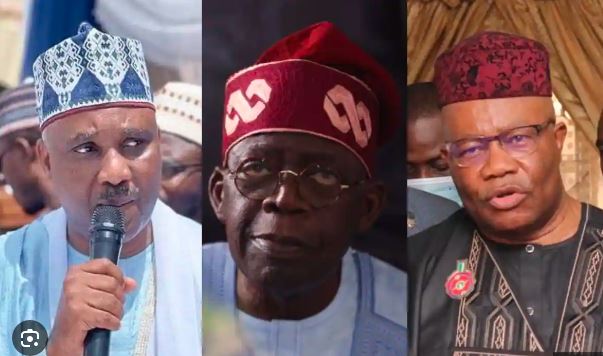Paragraph 1: The Budget Extension and Ensuing Controversy
The Nigerian National Assembly, comprising the Senate and the House of Representatives, has twice extended the implementation deadline for the capital component of the 2024 budget, pushing it to December 31, 2025. This move has ignited a firestorm of criticism directed at President Bola Tinubu and the legislature. Economists, financial experts, and the Organized Private Sector (OPS) have voiced concerns, citing the extensions as symptomatic of poor execution capacity within Ministries, Departments, and Agencies (MDAs). Critics also argue that these extensions undermine fiscal discipline and create complications in tracking budget performance, potentially obscuring the true picture of government spending and project completion.
Paragraph 2: Legislative Processes and Justifications
The Senate approved the extension during plenary, following a swift passage of an amended appropriation bill. Deputy Senate President, Barau Jibrin, announced the extension, emphasizing the expedited nature of the process. Senator Olamilekan Adeola, Chairman of the Senate Committee on Appropriation, led the debate, arguing that the extension was necessary to facilitate the completion of ongoing projects included in the 2024 budget. He further claimed that the government lacked sufficient resources to cover all proposed expenditures, urging his colleagues to support the extension to prevent the abandonment of crucial federal projects across the country. The House of Representatives followed suit, passing a bill for the same extension after a voice vote. Speaker Tajudeen Abbas echoed the Senate’s rationale, emphasizing the insufficient implementation of the 2024 capital budget as the primary driver for the extension.
Paragraph 3: Cascading Budgetary Implications
This second extension follows an earlier one that moved the deadline from December 31, 2024, to June 30, 2025, also at President Tinubu’s request. The initial justification was to allow the executive branch to finalize ongoing projects and optimize budget allocations. The latest extension creates an unusual situation where two budgets are effectively operating concurrently: the extended 2024 budget and the already approved 2025 budget. Sources within federal ministries reveal that the implementation of the 2025 budget is yet to commence, months into the fiscal year, with operations continuing under the 2024 budget. This has resulted in significant payment delays for contractors and government workers, further exacerbating concerns about the government’s fiscal management. The expectation among some officials is for a similar extension to be granted for the 2025 budget, mirroring the pattern established with the 2024 budget.
Paragraph 4: Expert Analysis and Economic Concerns
Economists have expressed deep reservations about the repeated extensions. Ayo Teriba, CEO of Economic Associates, described the action as a developing habit, highlighting the lack of resources to fund projects adequately. He questioned the need for 24 months to execute a 12-month budget, asserting that the underlying issue is a lack of funding. Paul Alaje of SPM Professionals warned about the potential inflationary impact of the extended budget implementation, particularly concerning the increased money supply. He emphasized the importance of adhering to budget cycles and limiting extensions to the first quarter of a new year to maintain predictability and control inflation expectations. Professor Akpan Ekpo highlighted the crucial role of capital budgets in driving economic growth, lamenting the embarrassment of running two budgets simultaneously. He stressed that this situation showcases inadequate forecasting and creates uncertainty for potential investors. He also expressed concern about the inflationary pressure resulting from increased money injected into the system.
Paragraph 5: Divergent Perspectives and Justifications
Dr. Muda Yusuf of the Centre for the Promotion of Private Enterprise pointed to historical underperformance of capital budgets, attributing it to factors like collapsed revenue assumptions, particularly from oil, and overly ambitious budget targets. He advocated for budget reforms to enhance realism and align capital projects with actual funding capacity. Dr. Aliyu Ilias cautioned that the repeated extensions set a worrying precedent, potentially distorting the budgetary process. He warned about the risk of duplication and reduced transparency in project implementation when two capital budgets run concurrently. Contrary to these criticisms, Segun Kuti-George, of the Nigerian Association of Small-Scale Industrialists, offered a more positive perspective. He argued that the extension allows the government to complete 2024 projects while simultaneously implementing the 2025 budget, viewing this as a positive development for infrastructure development and overall economic growth.
Paragraph 6: Concluding Remarks on Fiscal Management
The extension of the 2024 budget’s capital component has spurred a vigorous debate about Nigeria’s fiscal management practices. While proponents argue that it allows for project completion and continued infrastructure development, critics express concerns about fiscal indiscipline, transparency, and potential inflationary pressures. The parallel implementation of two budgets raises questions about budgetary planning and execution capacity within government agencies. As Nigeria navigates these complex economic challenges, the need for robust and transparent budgetary processes becomes increasingly paramount. The long-term implications of these repeated extensions will undoubtedly continue to be a subject of close scrutiny by economists, policymakers, and the public alike.


